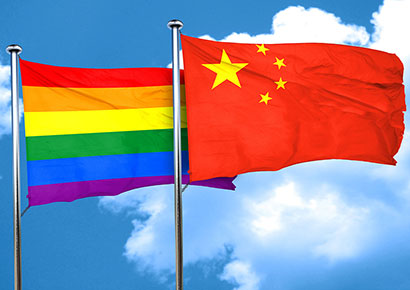China | Popular social media site reverses gay ban
 Weibo, one of China’s largest social media sites, has reversed the controversial decision to remove all LGBTQ content from its platform.
Weibo, one of China’s largest social media sites, has reversed the controversial decision to remove all LGBTQ content from its platform.
The microblogging site was launched in 2009 and has over 392 million monthly active users. It is estimated to be worth more that US$30 billion.
Last week, the company announced it would be removing material “with pornographic implications, promoting bloody violence, or related to homosexuality”. The site said it had already deleted more than 56,000 violations and closed more than 100 accounts.
The news led to a flood of criticism and anger from users, who took to social media with hashtags such as #IAmGay and #IAmIllegal.
The viral campaign against the move also resulted in a drop in the company’s stock on the Nasdaq market on Friday, losing nearly seven percent of its value.
According to Reuters, even the People’s Daily, a major state-run newspaper said that while ‘vulgar’ material should be removed, tolerance towards gay people should be encouraged.
“The problem with the policy is that it equates LGBT content with porn,” said Xiao Tie, the head of the Beijing LGBT Centre.
“But the bigger problem is the culture of strict censorship. Social media used to be an open space, but in the last year things have started to change.”
Responding to the outcry on Monday, Weibo seemingly reversed its position and clarified that it would only focus on deleting adult and violent content.
“This time, the cleanup of anime and games won’t target gay content. It is mainly [meant] to clean up content related to pornography, violence, and gore. Thank you for your discussions and suggestions,’ said the company in a statement.
Homosexuality is not illegal in China but LGBTQ people have no specific protections from discrimination. There has also been a growing trend to censor LGBTQ content.
In 2015, homosexuality was barred from being shown on television by the China Television Drama Production Industry Association. In 2017, the industry body regulating online content, the China Netcasting Services Association, issued new guidelines banning homosexuality online as “abnormal behaviour”.
Last month, the Oscar-winning gay romance Call Me By Your Name was dropped by the Beijing International Film Festival.
Leave a Reply